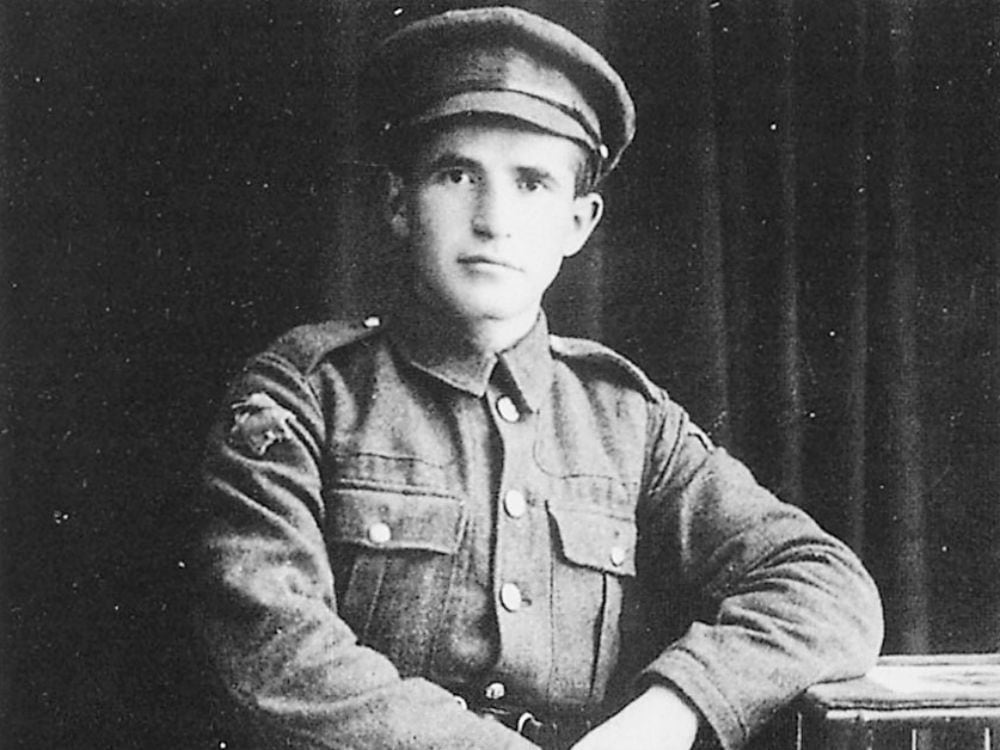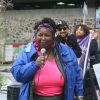
On September 23, the town of Windsor in Nova Scotia commemorated the 100th anniversary of the training of the Jewish Legion, a battalion of the British army that fought to liberate Palestine from the Ottoman Empire during World War One. In 1918, a young Jewish man named David Ben-Gurion was trained along with the rest of the Jewish Legion at Fort Edward in Windsor. He would later become Israel’s ‘independence’ hero and the country’s first prime minister. But according to Israeli historian Ilan Pappe, Ben-Gurion was also responsible for the ‘ethnic cleansing’ of the Palestinian people.
The centerpiece of the commemoration was a reflection on Ben-Gurion’s time in Windsor a century ago. The fact that he had been stationed there was only discovered four years ago when a photo of him was uncovered in the basement of the Army Museum Halifax Citadel. But while he came to fame as the founder of Israel, there was a darker side to this Zionist leader that is too often ignored.
Following World War One, while Palestine was under British rule, Ben-Gurion became a Zionist leader seeking the creation of a Jewish state in Palestine. And in 1946 he became the executive head of the World Zionist Organization. But during those years, the Jewish militia group Haganah, which was under the control of Ben-Gurion’s Jewish Agency, was responsible for carrying out terrorist attacks against the Arab population and later the British in Palestine.
In March 1948, Ben-Gurion launched Plan Dalet, which called for the systematic expulsion of Palestinians from Palestine. By the end of 1949 Israel had destroyed more than 400 Palestinian villages, massacred thousands of civilians and forcibly displaced almost a million Palestinians, most of whom ended up in refugee camps in neighboring Arab countries where they, their children and their grandchildren live to this day.
There are countless records of statements made by Zionist leaders between 1920 and 1948 on the need to remove all Arabs from the ‘Land of Israel’ in order to create a Jewish state with a Jewish majority. In reference to Plan Dalet, Ben-Gurion himself wrote that “the cleansing of Palestine remained the prime objective of Israel.”
Similarly, a directive from the Zionist leadership to its fighters during Plan Dalet declared, “The principal objective of the operation is the destruction of Arab villages…[and] the eviction of the villagers.” In other words, even though the Jewish people had just endured the horrors of the Holocaust, the Zionists were now carrying out, according to Israeli historian Ilan Pappe and others, the ethnic cleansing of the Palestinian people.
Palestinians had opposed a United Nations proposition to partition Palestine into two countries that would give the minority Jewish population a majority of the territory in order to create a Jewish state. And so, two months after the launching of Plan Dalet, the Zionists unilaterally declared the creation of the state of Israel, which encompassed 56 percent of Palestine.
Following the unilateral decision by Ben-Gurion and other Zionist leaders to establish the state of Israel, the Palestinians and surrounding Arab nations went to war with the new nation. Israel’s victory in the war allowed the newly-established country to expand its borders to encompass 77 percent of Palestinian territory—all but East Jerusalem, the West Bank and Gaza.
Over the next three years, 700,000 Jews immigrated to Israel from Europe and other places which, in conjunction with the ethnic cleansing and forced removal of Palestinians, ensured a Jewish majority in Israel.
The commemoration of the Jewish Legion that was held recently at Windsor’s Fort Edward included the reading of excerpts from letters that Ben-Gurion wrote to his wife while he was stationed there. Sadly, the commemoration did not reflect on the ethnic cleansing perpetrated by this Zionist hero and his military colleagues who received their training here in Nova Scotia.
Garry Leech teaches international politics at Cape Breton University and is author of eight books about US foreign policy, globalization and human rights.
If you can, please support the Nova Scotia Advocate so that it can continue to cover issues such as poverty, racism, exclusion, workers’ rights and the environment in Nova Scotia. A paywall is not an option, since it would exclude many readers who don’t have any disposable income at all. We rely entirely on one-time donations and a tiny but mighty group of dedicated monthly sustainers.
Subscribe to the Nova Scotia Advocate weekly digest and never miss an article again.



